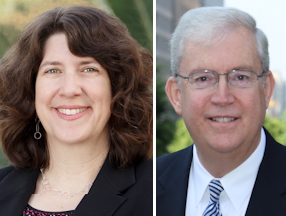Biocom’s recent insightful economic impact report on California’s life-sciences sector offered several eye-openers:
• The state is home to more than 12,000 life-sciences businesses and organizations, according to the report authored by public policy firm TClower & Associates.
• California leads the nation in funding from the National Institutes of Health for research and innovation.
• Biotechnology is increasingly a key contributor to the regional economy of Los Angeles, taking root throughout in the city of Los Angeles as well as Pasadena, Monrovia, the Santa Clarity Valley, South Bay and Santa Monica.
Add that up and biotech has the potential to become one of the region’s largest job creators.
That’s news because San Diego and the Bay Area are often considered the most expansive hubs for the life sciences. Yet California has an additional industry powerhouse in L.A.’s thriving sector. More news: Los Angeles County has long led the state in NIH funding, drawing more of these critically needed research grants (roughly $1 billion annually) than San Diego or San Francisco. And while the L.A. basin’s academic institutions have long nurtured the talent and innovation that drive the industry – Los Angeles boasts some of the nation’s finest teaching hospitals, biomedical research organizations and world-class universities – private investment and entrepreneurship in life-sciences fields are beginning to catch up.
The Biocom report details that the county is home to more than 2,400 individual establishments in the life-sciences industry, including 103 biopharmaceutical companies, 436 medical device and diagnostic companies, and 787 research and lab support institutions. The industry employs nearly 70,000 people, the largest employment figure of any county in the state, generates $40.3 billion in county economic output and increases labor income by $11.9 billion.
The numbers don’t lie and the evidence is clear: The L.A. life-sciences industry is growing fast.
L.A.’s long history as a hub for highly specialized, skilled manufacturing such as aerospace and defense makes it a natural fit for the production of life-sciences technologies.
Still, there is no doubt about the challenges the sector faces: We are under-recognized as a leading hub, perhaps because our 2,400 industry establishments are spread throughout the county instead of having a natural center. Additionally, the region has a lack of central wet lab space which, coupled with poor industry awareness, has created obstacles to attracting capital as well as top talent to the region.
But the building blocks are here and a new focus by both the private and public sectors in Los Angeles is working to provide the connectivity and infrastructure to bring the regional cluster from infancy to maturity. the Los Angeles County Economic Development Corp. and Biocom’s partnership, which embraces scores of industry stakeholders and public-sector life-sciences champions such as county Supervisor Mark Ridley-Thomas, is just one example of how the region is coming together to support the industry. Biocom established a permanent presence in Los Angeles last year to cement this support – establishing an office in the heart of downtown with a full-time staff of five dedicated to supporting L.A.’s life-sciences hub.
Our focus is on public policy and advocacy, building networks, as well as capital and workforce development – all of which help address the challenges we see in L.A.’s biotech industry. Many of these challenges mirror those San Diego faced more than 20 years ago when Biocom was established. In the decades since, life sciences have emerged there as an economic powerhouse that owes its success to many of the same core strengths we wish to harness here in Los Angeles.
The life-sciences industry with all its innovative subsectors represents a potent new source of economic development opportunity in the region as L.A.’s legacy industries face new challenges. We have all the ingredients: top-notch academic and research institutions, strong talent development, a vital and growing ecosystem of companies, and a world-renowned spirit of innovation and entrepreneurship. The regional strength of the industry, as evidenced by the economic impact report and renewed interest from policymakers and stakeholders, gives us hope for the future. At the same time, we must be realistic about the challenges we face and work together to ensure that we capitalize on our assets to ensure our future growth.
Lozofsky is executive director of Biocom’s L.A. office.
Allen is a member of Biocom L.A.’s advisory council and CEO of the Los Angeles County Economic Development Corp.

